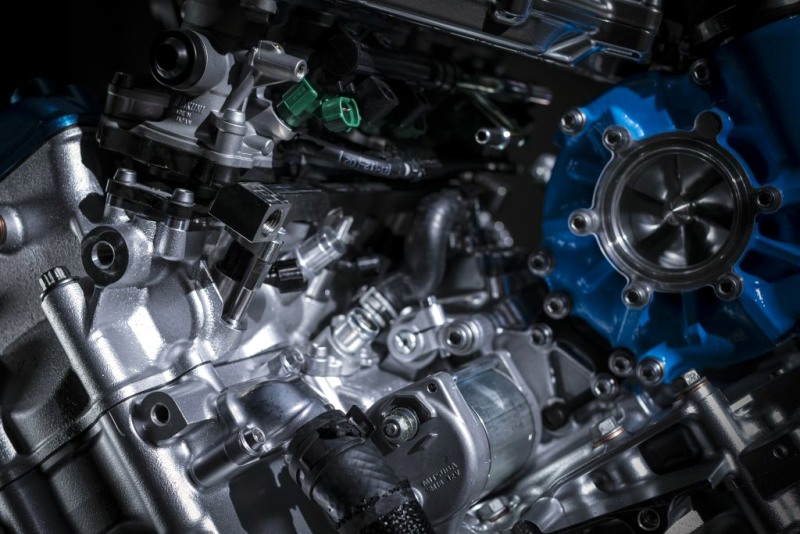What In The World Would Hydrogen Engines Be Like?
It comes as a surprise to no one that anything powered by gasoline is in the cross-hairs these days. We’re seeing electric alternatives sweeping the industries all around us from cars to mowers to recreational vehicles.
Kawasaki recently revealed its carbon neutrality plans at 2022 EICMA Motorcycle Show in Milan. Perhaps the most interesting of these coming in the form of a direct injection and compressed gaseous hydrogen engine that has been shown as a concept Ninja H2 as well as shown inserted into the chassis of a Teryx KRX 1000 side x side.
Kawasaki isn’t the only one pushing the hydrogen engine envelope either – Yamaha is also developing and testing concepts of their own.
So what would a hydrogen engine offer to the off-roading segment you wonder? Let’s take a deeper look.
Hydrogen as a Fuel

It is possible to keep the internal combustion concept alive and well but to instead rely upon hydrogen in either liquid or gaseous form as an alternative fuel to gasoline (this is the method Kawasaki is showing off in its Teryx concept).
The energy in one gallon (6.2 pounds) of gasoline can be matched in only 2.2 pounds of hydrogen gas. However, to achieve comparable driving range, hydrogen would need to be onboard in highly compressed tanks (5 – 10,000 PSI range) which, currently take anywhere from 5 to 15 minutes to recharge at a commercial automotive dispenser.
Hydrogen as a Battery

An alternative means of extracting the potential in hydrogen is to run a fully electric motor, just like the ones slowly making their way into every industry, only rather than draw the necessary voltage from lithium ion batteries, hydrogen fuel cells can be implemented instead.

So why aren’t hydrogen powered vehicles taking over the world yet? A few reasons – the first of which nearly everyone can relate to. It’s very expensive. Because there is yet an established infrastructure, refining it and storing it adds significantly to the cost handed down to consumers. At present it’s roughly four times as expensive per gallon as gasoline ($16 a gallon).
While it is true that the exhaust byproducts of hydrogen produce no CO2 emissions, the same cannot be said for the processes required to produce it.
At present it is what is known as an energy-neutral fuel – that means it takes nearly as much energy to produce as it offers.
Efficiency Compared
Every type of fuel has an energy efficiency rating – how much of the energy are we using. Hydrogen sits firmly in the middle of the scale with fuel cell energy efficiency topping out around 60% compared to the typical 20-30% efficiency we get from internal combustion/ gasoline. Lithium-ion batteries by comparison come in at an unbeatable 99%. Even the older lead acid batteries alike the ones firing up our cars boast 90% efficiency.

In the 2000s hydrogen was looking like the clean energy alternative of the future. Sadly, the realities of using it as a widespread fuel source simply never took off as anticipated. We’re glad to see some of the staples of our industry experimenting into gasoline alternatives but until a hydrogen infrastructure can be established and end-costs brought down, we aren’t holding our breath. Which, ironically, contains 1% hydrogen.

